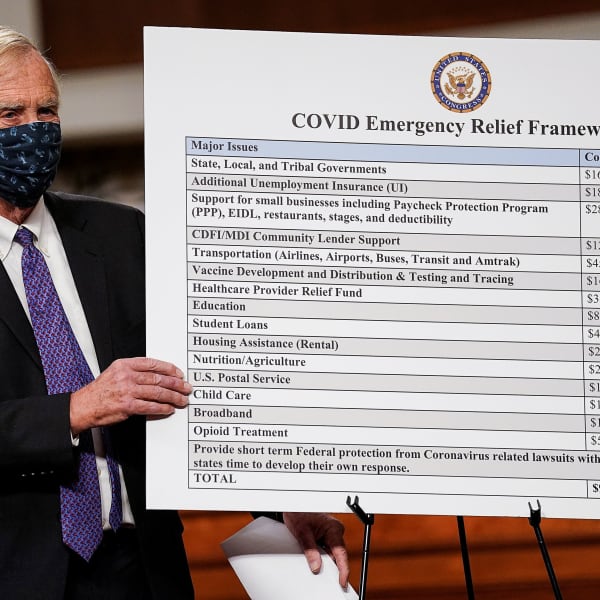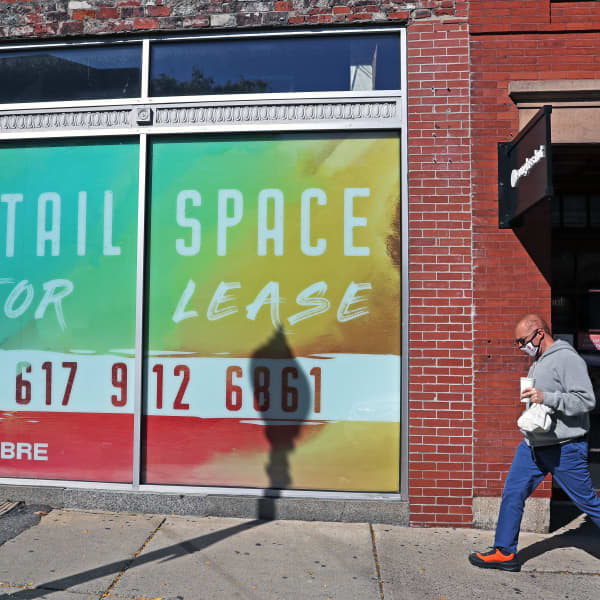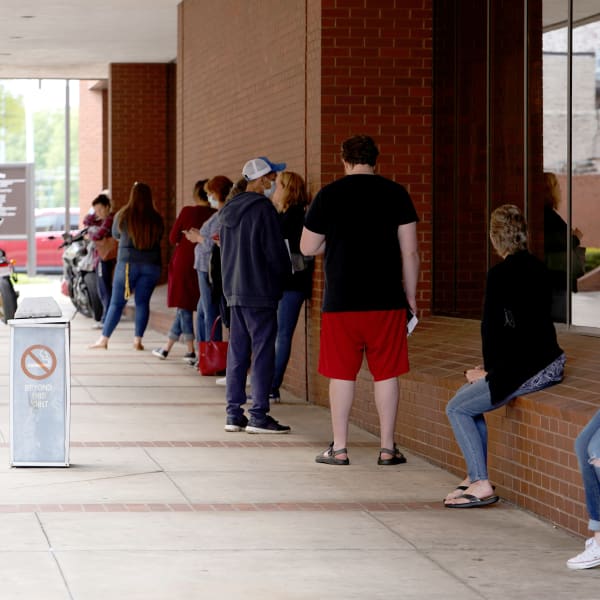David Mitroff, a marketing expert and founder of Piedmont Avenue Consulting, uses Amazon Prime for both business and personal use almost every day, "if not twice a day," he says.
And Mitroff doesn't like what he sees in the future of the small-business community as a result of his own growing reliance on the tech and retail giant's e-commerce offerings.
"I do worry more and more as I use it ... yet I still use it," Mitroff said. "I do worry that local stores will close or there will be no place to go touch things and see things in person. Sometimes I try to stop myself from ordering and go to the nearby store. However, it is so much more efficient as a small-business owner. When I need more printer paper or office snacks or anything ... It is scary that literally across the street or around the corner I can buy most of the things I need, however it is so easy to place the order and get back to work."
Mitroff is not alone, and business reliance on Amazon filters down through the ranks of small-business managers.
"Do I want to get on the road and ride bumper to bumper to get to the store for a few items, such as stationery and a couple of boxes of Lipton tea?" said Belinda Foster, director of marketing at PR firm AWJ Platinum. "I find myself opening up a browser on my tablet, and with a click of the wrist, I shop within a 10-minute time frame. ... I find that I have less stress throughout the day, thanks to shopping online. ... I see it as a stress buster."
Matt Ham, president and owner of Computer Repair Doctor, said his business spends roughly $11,000–$12,000 per month buying office supplies and parts through its Amazon Prime account.
How much do small-business owners like Amazon Prime?
According to the third-quarter CNBC/SurveyMonkey Small Business Survey, the households of small-business owners are significantly more likely to be Amazon Prime members than the general population of Americans — 58 percent vs. 46 percent. (SurveyMonkey includes a non-small-business owner survey group of over 10,000 respondents for comparison purposes with the more than 2,200 business owners surveyed.)
Does your household subscribe to Amazon Prime?
| Use of Amazon | All business owners | Under 35 | 35-44 | 44-54 | 55-64 | 65 and older |
|---|---|---|---|---|---|---|
| Yes, we subscribe to Amazon Prime | 58% | 58% | 64% | 61% | 55% | 52% |
| No, but we make some purchases on Amazon | 27% | 33% | 31% | 24% | 25% | 28% |
| No, we do not use Amazon | 13% | 6% | 5% | 14% | 18% | 17% |
Source: CNBC | SurveyMonkey Small Business Survey, Q3
Small-business owners who say their businesses are helped by Amazon are more likely to live in households that subscribe to Amazon Prime than those whose businesses compete with Amazon for customers (68 percent vs. 54 percent).
Finding ways to become more competitive through Amazon
The CNBC/SurveyMonkey data also shows that small-business owners aren't exhibiting a broader fear of innovation. Only 8 percent of small-business owners said technological innovation will have a negative effect on their business in the next year, while 42 percent said it will have a positive effect (49 percent answered "no effect").
Some are finding ways to use Amazon as much as it uses them — specifically, to size up the competition and test out new products.
"We can see what everyone is doing, what they are selling and how well they are selling," said Sean Allan of SiamMandalay, which creates educational puzzles and games. "If you know where to look, it's all there. I can see how well a product sells, as well as how many they sell in a day."
Wayne Perry of natural health product manufacturer GSC Products said the company has been using Amazon not just to buy ingredients and supplies but to test new products and as a price control, which in turn allows it to better price for its other sales channels.
The thing that truly freaks me out is that sometimes I place an order at 9 a.m. or even 10 a.m. and have the items in my hand the same day, before I leave the office.David Mitrofffounder of Piedmont Avenue Consulting, who uses Amazon Prime once, if not twice, most days
Whenever GSC launches a new brand or product, it limits initial sales to its own Amazon store and several large Amazon sellers who use Amazon fulfillment, professional Amazon sellers (not stores) who sell hundreds if not thousands of product offerings in their catalogs. "We can tell within four months if it's a winner or loser," Perry said.
If the product is a winner, then GSC will push it out to the bigger Amazon sellers network so they can handle fulfillment through Amazon and "the headaches that come along with that," Perry said. GSC then concentrates on wholesaling the product to other web retailers and traditional stores. By working with small groups of large Amazon sellers, it can make sure that Amazon doesn't undercut the pricing in brick-and-mortar stores. "That's become a huge problem these days, because brick-and-mortar retailers won't take your products if a consumer can simply look on their phone and find it way cheaper on Amazon," Perry said.
GSC can also adjust pricing for products that are selling slowly and get an idea for what the MSRP should be on other web sales platforms and in stores, but it's not always about lower prices. "We have learned that certain products sell better at a higher price, believe it or not. Amazon teaches you so much about consumer buying habits without having to spend thousands on focus groups and you're making money while testing your products," Perry said.
In general, do you think that Amazon is good for small businesses, bad for small businesses, or has no effect on small businesses?
| View of Amazon | All business owners | Retail trade | Real estate and rental and leasing | Arts, entertainment and recreation | Finance and insurance | Health care | Professional, scientific, technical |
|---|---|---|---|---|---|---|---|
| Good for small business | 35% | 31% | 38% | 45% | 37% | 36% | 33% |
| Bad for small business | 42% | 52% | 39% | 40% | 44% | 40% | 46% |
| Has no effect on small business | 21% | 13% | 21% | 13% | 15% | 20% | 18% |
About a quarter of retail business owners (26 percent) see themselves in direct competition with Amazon, the highest of any industry, and yet twice as many retail owners (52 percent) subscribe to Amazon Prime.
More from the CNBC/SurveyMonkey Small Business Survey:
Small-business confidence drops, even among conservatives
The small-business owners who use Amazon frequently don't mince words about the worst-case scenario in this fast-evolving "frenemy" relationship.
"Prime shipping and the one-stop-marketplace nature of Amazon is so powerful, it's ridiculous to think we can compete," Allan said. "The biggest buying and selling advantage is Prime shipping. Next-day delivery anywhere in the country on nearly any product ... How can you compete with that?"
Mitroff said he does see the retail world changing, with stores designed more for demonstrated products that will be delivered to your office or home. And for specialized products — or when education or appreciation of art is needed — the sales process is different. But for generic products, it's all about being delivered on demand.
"The thing that truly freaks me out is that sometimes I place an order at 9 a.m. or even 10 a.m. and have the items in my hand the same day, before I leave the office," he said.
The CNBC/SurveyMonkey Small Business Survey is conducted quarterly using SurveyMonkey's online platform and based on its survey methodology. The third-quarter survey was conducted Aug. 10–Aug. 17.





